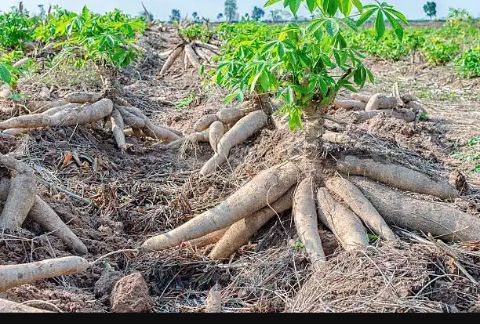To avert a food crisis in 2023, The Nigerian Meteorological Agency, NiMet, on Thursday asked Nigerian farmers and other important stakeholders in the agricultural sector to fully utilize farming during the dry season. This advice was made in reaction to the continued rise in food prices brought on by the terrible floods that devastated most states, destroyed crops, claimed lives, and caused significant property damage.
During a one-day workshop on climate information service on the food crisis, organized by the Human & Environmental Developmental Agenda, HEDA, in Abuja, NiMet’s Director General, Prof. Mansur Bako Matazu, made this call.
To increase food production in the nation, Matazu also called for youth involvement. In which he made emphasis that “Farming during the dry season appears to be more productive, and weather-related danger is lower during this time. Therefore, the impact on livelihood and food and nutrition insecurity in the nation will be lessened if those who have been impacted are encouraged to engage in dry-season farming.
Additionally, I believe we will feel some relief if we get our youth involved in agriculture, other sorts of agriculture, and vices related to insurgency and conflict since then they won’t have time to be enlisted as society’s miscreants.
NiMet reaffirmed its commitment to delivering seasonal climate forecasts early in the year to allow for early planning and asked state governors to be more proactive in implementing actions targeted toward protecting lives and property.
Similar to this, Sulaimonn Arigbabu, executive secretary of HEDA Resource Center, lamented the sluggish responses of agricultural stakeholders to the projections of NiMet while hammering home the point that Nigerians must take advantage of the dry season for farming. He was also of the opinion that “Dry season farming in Nigeria is a method of avoiding the food catastrophe that is already here, or perhaps abating it would be a better phrase”.
Since NiMet began releasing its seasonal climate predictions, the nation has not been able to fully benefit from them, especially for the agricultural sector, and the reason is not implausible. The state level should then take the necessary steps. Once a forecast is made at the national level, it is crucial to note that NiMet has the capability of focusing on each state, in fact, on local government, and providing them with annual, monthly, and even three-day forecasts about the weather, including the likelihood of specific types of precipitation and temperatures. These forecasts are crucial for agriculture because they provide a wealth of useful information.
Nigeria hasn’t been able to benefit from it since local or state governments aren’t taking the necessary actions to ensure that they happen. Therefore, we’re here with a few permanent secretaries to strategize about how to improve early seasonal climate prediction for the state, and information dissemination to farmers because farmers must use the information to decide what to plant, their planning window, which comes from the crop weather calendar of NiMet, as well as the kinds of varieties that they will plant.
In conclusion, Nigerian farmers are urged to take practical steps to reduce food scarcity due to destruction from some climatic Factors such as rainfall and ash weather conditions.


